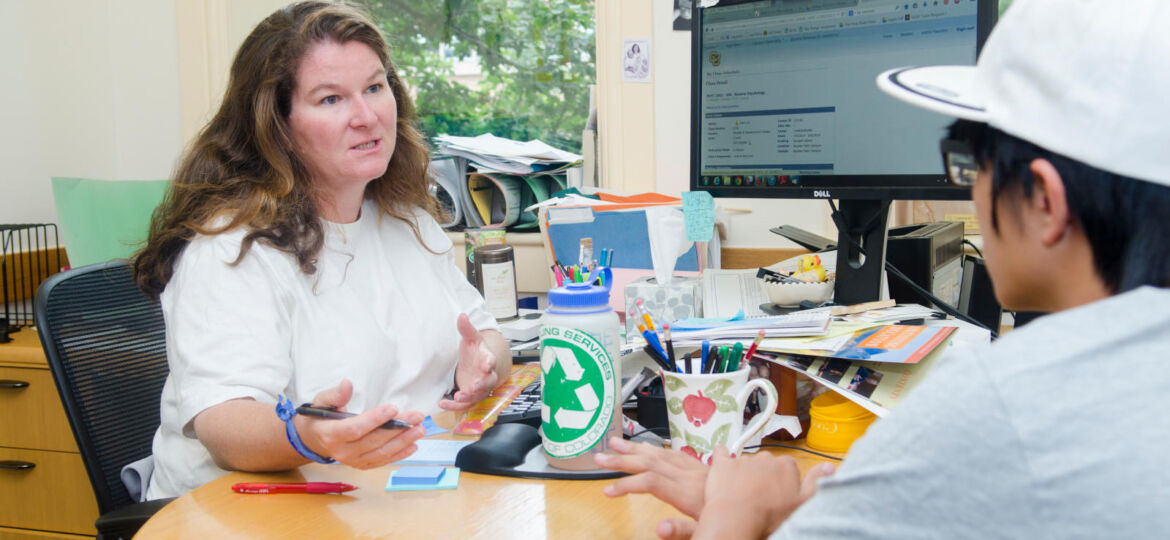
Student Mental Health Worsens
During COVID-19
by Noah Holtgraves, Contributing Writer | November 12, 2020
Days are starting to blend for University of Colorado Boulder astrophysics student Anna Parker. Her mental health suffers while she isolates and completes her coursework in bed during the pandemic.
College is stressful, but during COVID-19, students in the United States face unique challenges that run counter to the traditional social college experience. When students should expand their engagement with the world, they are asked to eliminate all in-person contact. Parker describes herself as an extrovert and says the lack of social interaction is draining.
“No one goes anywhere, no one does anything and we just try to go to our classes, as we can to learn things,” Parker said.
As the pandemic became routine, so has distanced learning. Students spend weeks studying in cramped dorms or apartments, interacting only with roommates. Even with roomies, students can still feel solitude, and Parker continually deals with immense loneliness. Learning entirely online is tricky, and Parker finds it challenging to focus on school and these mental health problems simultaneously.
“Online classes are hard to learn in,” Parker said. “It’s hard… when you’re sitting in your bed trying to pay attention to some professor talking on the screen. Compile that with the significant difficulty of being required to stay home… It can have a very strange effect on you.”
That strange effect often can take the form of loneliness and depression, impacting academic performance according to recent data from The Healthy Minds Network and the American College Health Association. Dr. Tina Pittman Wagers, a Teaching Professor and Clinical Psychologist in the Department of Psychology and Neuroscience at the university, noticed a change in her students’ mental health from a year ago.
“We know that social isolation is not healthy,” Pittman Wagers said. “It’s just not how we were built as a species to endure long periods of isolation from one another, and there’s reason to believe that from a neuroscience standpoint that this social isolation is even harder on this 18-25 age group than it is for the rest of us.”
Pittman Wagers explains that young adults are significantly affected by isolation due to the innate social drive that comes with being this age. The need for social interaction can be as fundamental as food and sleep, and it is difficult for students to stay comfortable isolating in cramped student housing.
Fostering a proactive mental health wellness culture on campus can address some disparities. A lot of that proactive approach is put directly on professors right now. Pittman Wagers says the university asks teachers to provide additional social support for their students in the pandemic. While teachers can offer some help, they are not therapists. Asked if she gets university assistance to provide additional support for students, Pittman Wagers pivoted after searching for the words, “I think that there is a reckoning happening around student wellness mental health that we have not seen the likes of before.”
Anna Parker feels the university takes a hands-off approach to her mental well-being, claiming the school only sends web links for school counseling services as a sole resource.
“College students aren’t the most stable bunch anyways,” Parker said. “So these days, a lot of students are just very unstable; they’re feeling out of touch with reality, they feel very isolated; they feel not very good mentally, and professors don’t know how to handle that. It’s a hard thing to handle, and also teach a class.”
This problem is not this university alone; there is a lack of mental health resources across the nation. A national mental health crisis existed long before COVID.
Acknowledging the need for capacious mental health services, CU Boulder announced a budget expansion of $700,000 for mental health and wellness services in October.
According to a recent Daily Camera article, the budget increase is likely in dire need as the university’s Counseling and Psychiatric Services reports an 87% increase in behavioral health sessions this year during August and September over the same period last year.
Pittman Wagers says Generation Z shows promise in ending the stigma associated with talking openly about mental health. Starting a national dialogue about mental health might draw the attention and funding needed to increase mental health resources at universities like CU Boulder.
Both teachers and students seem to agree that the stigma around talking about mental health is going away- especially for the current generation in college. Students are learning the language of psychology and how to understand their mental health challenges. As students become increasingly comfortable accessing mental health services and talking openly about their well-being, a mental health awareness culture creeps into the mainstream.
Anna Parker is a fictional name representing a real University of Colorado Boulder astrophysics senior. She spoke about her mental health with the caveat that her name is withheld from the published article. I agreed to protect the private health information of a student.
Call 911 if you or someone you know is in immediate danger or go to the nearest emergency room.
Colorado Crisis Line
1-844-493-8255
Chat online or text TALK to 38255.
Crisis Text Line
Text 741741 from anywhere in the nation to reach a counselor.
CU Counseling and Psychiatric Services (CAPS)
303-492-2277 (24/7 support)

